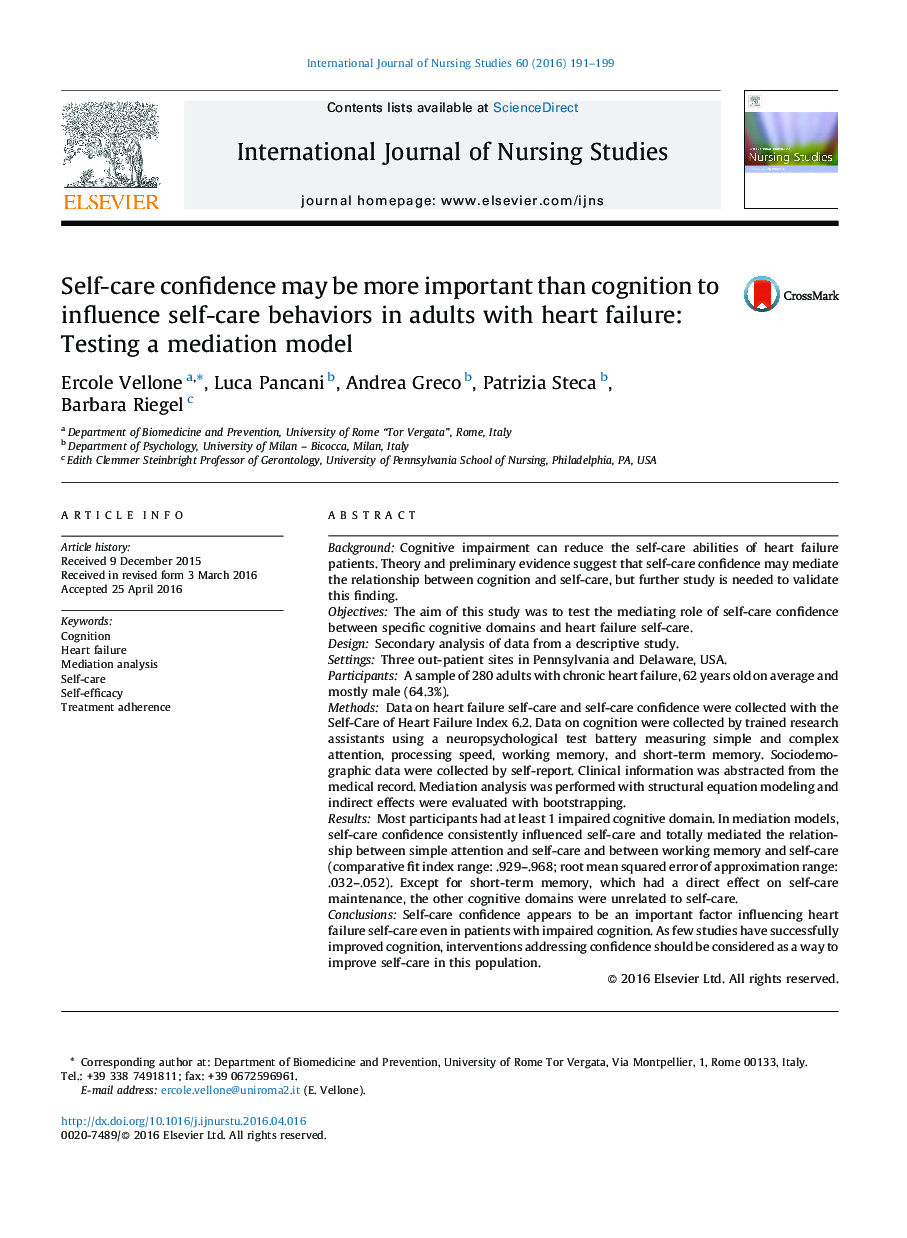| کد مقاله | کد نشریه | سال انتشار | مقاله انگلیسی | نسخه تمام متن |
|---|---|---|---|---|
| 1075973 | 1486509 | 2016 | 9 صفحه PDF | دانلود رایگان |
BackgroundCognitive impairment can reduce the self-care abilities of heart failure patients. Theory and preliminary evidence suggest that self-care confidence may mediate the relationship between cognition and self-care, but further study is needed to validate this finding.ObjectivesThe aim of this study was to test the mediating role of self-care confidence between specific cognitive domains and heart failure self-care.DesignSecondary analysis of data from a descriptive study.SettingsThree out-patient sites in Pennsylvania and Delaware, USA.ParticipantsA sample of 280 adults with chronic heart failure, 62 years old on average and mostly male (64.3%).MethodsData on heart failure self-care and self-care confidence were collected with the Self-Care of Heart Failure Index 6.2. Data on cognition were collected by trained research assistants using a neuropsychological test battery measuring simple and complex attention, processing speed, working memory, and short-term memory. Sociodemographic data were collected by self-report. Clinical information was abstracted from the medical record. Mediation analysis was performed with structural equation modeling and indirect effects were evaluated with bootstrapping.ResultsMost participants had at least 1 impaired cognitive domain. In mediation models, self-care confidence consistently influenced self-care and totally mediated the relationship between simple attention and self-care and between working memory and self-care (comparative fit index range: .929–.968; root mean squared error of approximation range: .032–.052). Except for short-term memory, which had a direct effect on self-care maintenance, the other cognitive domains were unrelated to self-care.ConclusionsSelf-care confidence appears to be an important factor influencing heart failure self-care even in patients with impaired cognition. As few studies have successfully improved cognition, interventions addressing confidence should be considered as a way to improve self-care in this population.
Journal: International Journal of Nursing Studies - Volume 60, August 2016, Pages 191–199
